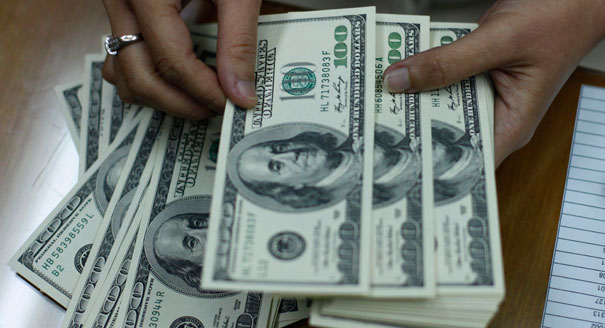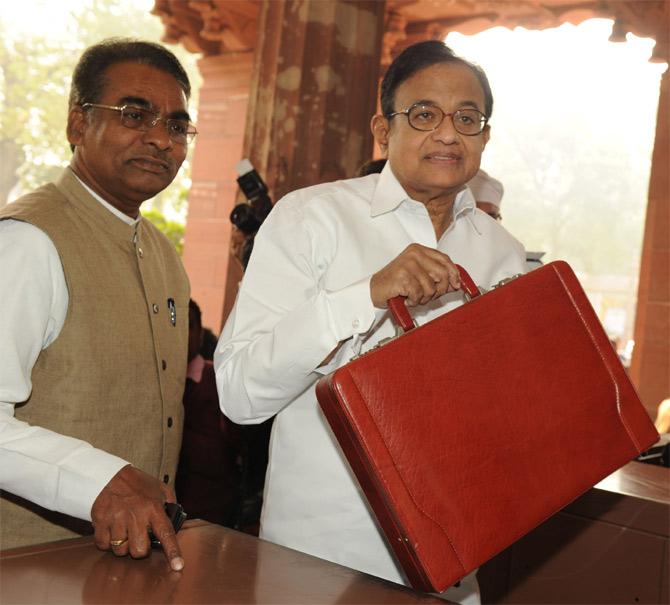
Though the Direct Taxes Code is still work in progress - something that would be high on the agenda of the new government - the latest draft confirms industry's worst fears.
Uncertainty impacts sentiments of global investors
Girish Vanvari, co-head of tax, KPMG in india
Taxability of offshore transactions involving indirect transfer of assets in India has been a subject matter of a long-drawn debate with the Revenue challenging the 'substance' of such transactions.
Supreme Court's favourable ruling in the case of Vodafone in January 2012 seemed to put to rest this controversy.
However as a counter move, the government nullified the judgment by bringing about a retrospective amendment in law to tax international transactions where such shares "derive its value substantially from the assets located in India".
Further, there was no clarity on the mode of computation of income.
....

This amendment unnerved the global investors sensing which the Honorable Prime Minister constituted the Shome Committee to review the law and to recommend changes.
The Committee inter alia recommended the following relaxations:
(i) prospective application of above law
(ii) certain safe harbours for portfolio investments, foreign listed companies and group restructuring
(iii) 50 per cent threshold of global assets to be located in India to determine 'substantiality of value derived from India'
(iv) minimum threshold of 26 per cent of total voting power/share capital as a trigger point for this law.
....

These were laudable recommendations and it was anticipated that the same would be incorporated in law.
However, the Direct Taxes Code (DTC), 2013, ignores most of these recommendations and makes these conditions for relaxations even more stringent. DTC-2013 proposes to reduce the asset threshold from the earlier proposed 50 per cent to 20 per cent and also reduce the small shareholding exemption threshold from 26 per cent to 5 per cent.
This proposal seems to be based on the avowed intention of the government to rein in fiscal deficit.
To conclude, there are multiple inconsistent perspectives of the government and no finality on this issue.
The views expressed are personal
....

No provision for merger of LLPs
-Zulfiqar Shivji, Partner and Head, Transaction Advisory & Support, BDO India
The revised DTC contains inter alia M&A provisions, which are similar to the current tax provisions and has provided further clarity on certain aspects introduced by the old version.
One key provision is the taxation of indirect transfers when shares of foreign entities change hands.
DTC-2013 has clarified that if the Indian assets/interest represent 20 per cent of the fair market value of all the assets owned by the foreign entity, the foreign entity would be subject to tax in India.
DTC-2013 continues to provide tax neutrality to mergers and demerges subject to satisfaction of certain conditions. It has further modified the definition of business reorganisations to facilitate non-residents.
.....

DTC-2013, however, does not contain provisions relating to the merger of Limited Liability Partnerships (LLP).
This is likely to gain rapid preference once there is more clarity on tax provisions. General Anti Avoidance Rules contain a broad set of provisions that have the effect of invalidating arrangements under certain circumstances.
This law gives a free hand to the tax department to challenge any restructuring transaction, thereby opening the doors to the possibility of a host of litigation. DTC provides a window of opportunity to an assessee to seek an advance ruling on whether a transaction is impermissible or not.
Other provisions pertain to taxation of controlled foreign companies, which focus on taxing the undistributed profits of a foreign company situated in a low tax jurisdiction, but controlled by residents.
...

CSR expenditure not a tax-deductible expense
Neeru Ahuja, Partner, Deloitte Haskins & Sells
The revised draft of the Direct Taxes Code 2013 ('DTC 2013') is a welcome step, as it has incorporated a majority of recommendations made by the Standing Committee on Finance ('SCF') on the previous version of DTC.
However, the revised version in certain critical areas is against the general objective and intention behind introduction of DTC.CSR is one such domain where the lawmakers have disappointed the taxpayers.
The newly introduced Companies' Act 2013 provides a broad list of CSR activities, which includes women empowerment, preferment of education and employment, orphanages and old age homes, preservation and protection of wildlife, etc.
Every company, which has a net worth of at least Rs 500 crore (Rs 5 billion), or a turnover of at least Rs 1,000 crore (Rs 10 billion) or net profit of at least Rs 5 crore (Rs 50 million)is, henceforth, mandatorily required to spend at least two per cent of the average net profits of the company in the immediately three preceding years towards CSR activities.
...

The Finance Ministry, while introducing the revised draft, has made clear that it is not in support of giving tax allowances to businesses for their social welfare expenditure since it is an application of income and tax deduction, which would imply foregoing one third of government tax revenue.
This is despite the recommendation proposed by the SCF to allow tax deduction for such CSR expenditure.
The current Indian socio-economic scenario demands a significant expenditure on CSR activities by business houses. The absence of tax incentive on the same will only impediment the voluntary spend by businesses, and will also lead to dissatisfaction amongst companies.
....

Widen the tax base
Sanjay Sanghvi, Partner, Khaitan & Co
In the revised Direct Taxes Code, 2013, there is a proposal to levy tax at the rate of 35 per cent on an individual / Hindu Undivided Family (HUF) whose income is above Rs 10 crore.
One may feel that this additional 5 per cent tax burden may not be fair as the government should go all out in making efforts to increase the 'tax base'.
Merely because a person who earns Rs 10 crore may be in a position to pay an additional 5 per cent tax on his income above Rs 10 crore, in the larger scheme of things, the same may not be fair to such taxpayers who already contribute a sizeable amount of tax to the Indian exchequer.
....

One would believe that an effective measure by the government to increase and broadbase the tax base, would have yielded better tax revenues for the government than levying an additional burden on a small group of taxpayers.
One positive revision is concerning the revised definition of 'Place of Effective Management' (POEM), which provides that the residential status of a foreign company would be - the place where key management and commercial decisions that are necessary for the conduct of the business of the company as a whole are made.
This definition is in accordance with international practices. It is the board of directors who run the business enterprise. The earlier definition provided that where the 'board of directors' routinely approve commercial and strategic decisions made by executive directors or officers of the company, the POEM would be the place where such directors/officers perform their functions.
....

Changes target high net worth taxpayers
Rahul Garg, Leader- Direct Tax, PwC India
The finance minister has proposed certain provisions in the DTC-2013, which may impact market sentiments significantly.
In a departure from the current provisions, the radius of the wealth tax net has been expanded to capture all assets, with some exceptions.
DTC-2013, if legislated in its present form, would imply that investment in shares, mutual funds and fixed deposits would attract wealth tax.
Transactions in shares were already subject to the securities transaction tax as well as capital gains tax and now, the proposal to levy wealth tax.
However, the threshold for the levy in the case of individuals and HUFs is quite high at Rs 50 crore and the rate has been lowered from 1 per cent to 0.25 per cent and companies and FIIs are out of the wealth tax net.
...

DTC-2013 has done away with the distinction of short-term and long-term asset for the purpose of capital gains taxability and is proposing to treat it as an income from ordinary sources, subject to tax on net basis (with indexation in certain cases) at the marginal tax rate (30 per cent/ 35 per cent).
However, deduction of 100 per cent and 50 per cent is allowed on long term and short-term capital gains, respectively on transfer of equity shares and units of equity oriented fund, which are subject to the securities transaction tax thereby exempting long-term capital gains and effectively taxing short-term capital gains at the rate of 15 per cent.
....

Inspite of the fact that capital gains are taxed at the maximum marginal rate, the inter-head loss set-off against capital gains is not allowed.
Interestingly, the Code proposes the cost of acquisition to be 'nil' in cases where it cannot be ascertained for any reason.
Additionally, resident investors receiving dividend in excess of Rs 1 crore would be required to pay additional dividend tax at the rate of 10 per cent over and above the DDT payable by the company. The controversy on transfer of security held by FIIs has been put to rest by characterising it as income under the head capital gains.
Thus, these proposed changes seem to target high net worth taxpayers.